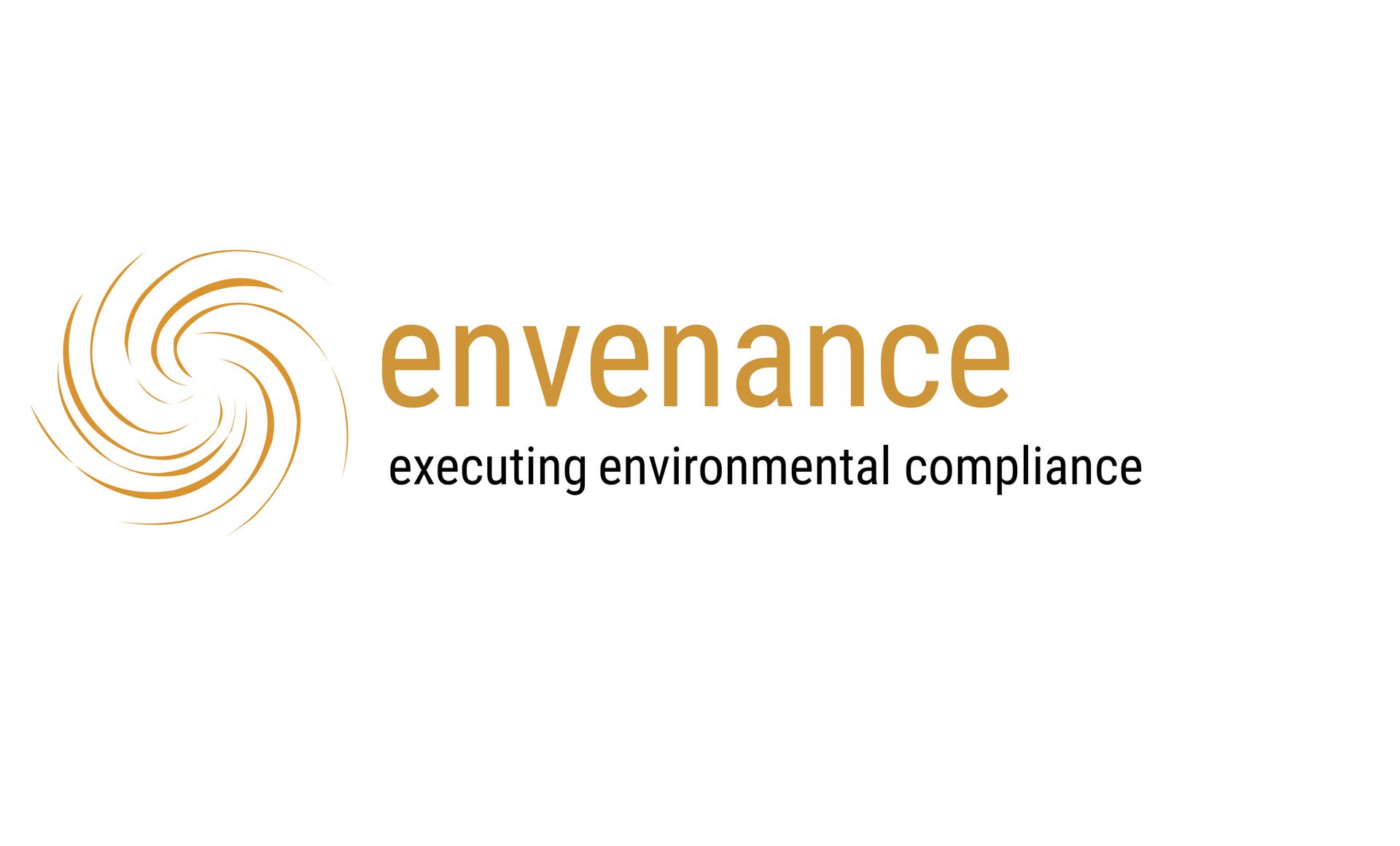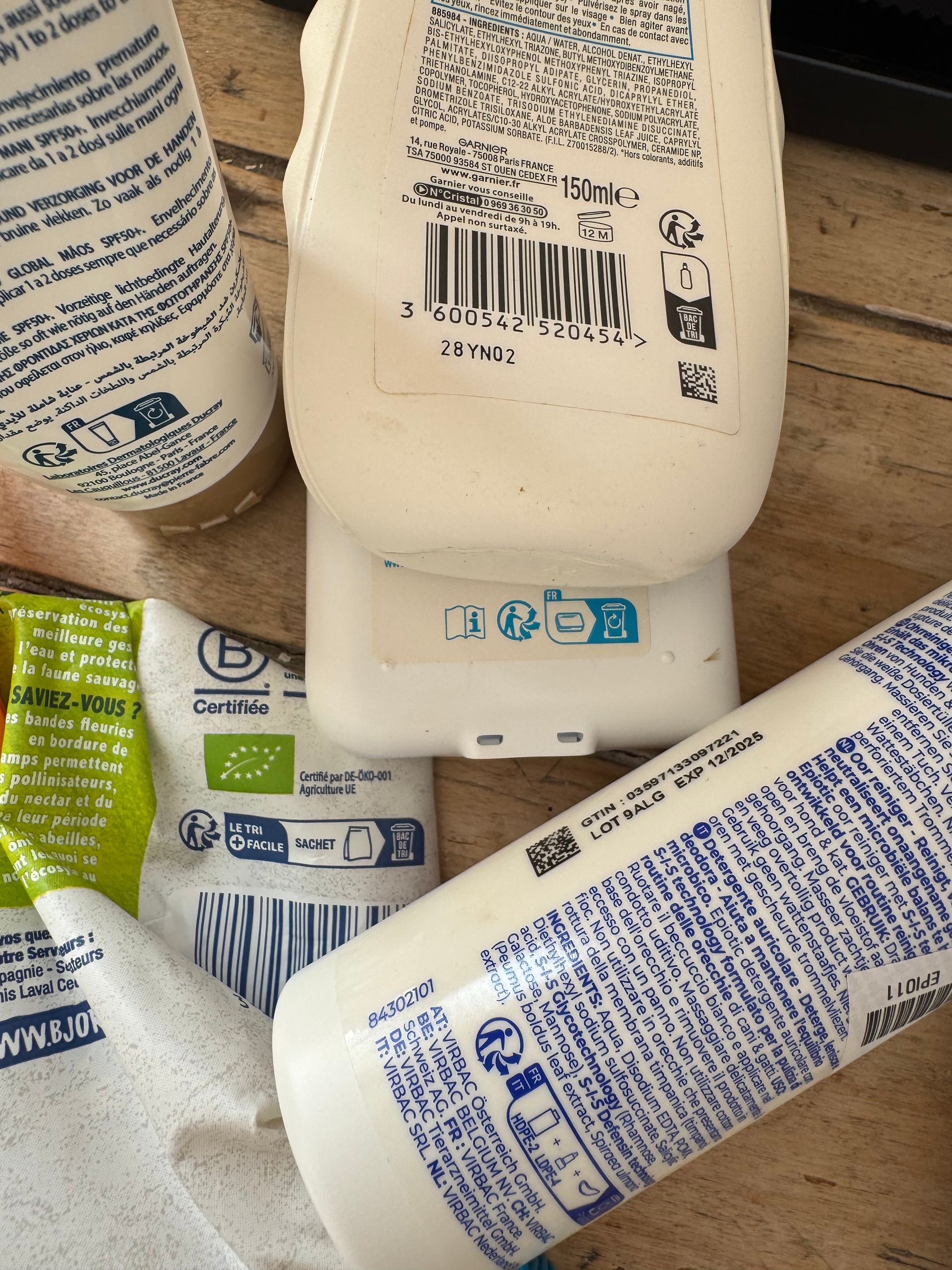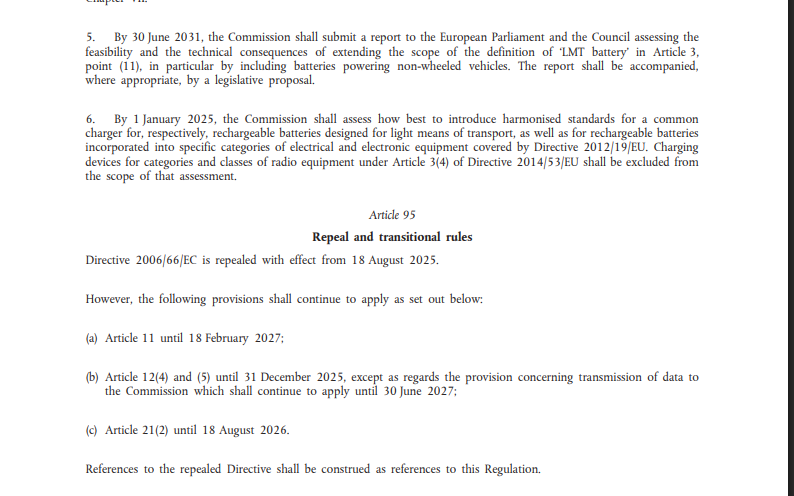Harmonized Battery Reporting – EU Commission Accelerates Implementation of Batteries Regulation
envenance on compliance.
With the Batteries Regulation (EU) 2023/1542, the European Union has established a new framework for the sustainable management of batteries. Now, the European Commission is following up with a new implementing regulation, which defines how Member States will be required to report data on the placing on the market, collection, treatment, and recycling efficiency of batteries.
This step is crucial for efficiently monitoring the achievement of the objectives set out in the Batteries Regulation. The aim is to create comparable and reliable data across Europe—especially concerning the volumes of batteries placed on the market and collected, broken down by category (portable batteries, light means of transport batteries, starting, lighting and ignition batteries, industrial batteries, and electrical vehicle batteries) and chemical composition. For each category, the reporting is supposed to be limited to a maximum of five compositions—such as lithium-based, lead-acid, nickel-cadmium, etc.
Private Sector Under Pressure?
This development may pose particular challenges for private-sector take-back schemes (see envenance article:). These operators may now be forced to adapt their existing reporting systems to the new EU format, consider filing objections to the Commission’s approach, or find ways to continue using their often more granular reporting structures within the new legal framework.
Direct Application– No National Transposition Required
The implementing regulation is designed as directly applicable EU law. This means no national transposition is necessary. This urgency highlights in the view of the author the Commission’s political will to accelerate regulatory implementation in the battery sector.
Criticism of the Pace – EU Ombudswoman Calls for Transparency
However, this rapid pace is now facing growing criticism. European Ombudswoman Teresa Anjinho has asked the Commission to explain its fast-tracked procedures behind recent regulatory changes. This relates particularly to the Commission’s decision to temporarily exempt small businesses from EU sustainability reporting requirements—to reduce bureaucracy and strengthen their competitiveness.
In a letter to the Commission, Anjinho pointed out that internal review of the changes was given only 24 hours, starting on a Friday evening, instead of the usual ten-day consultation period. This raises concerns—especially regarding the planned postponement of due diligence obligations under Article 48 of the Battery Regulation, which companies must comply with starting August 18, 2025.
Linked to Broader Deregulatory Agenda: OMNIBUS and the Single Market Strategy
In the view of the author, the fast-tracking of sustainability and reporting rules is part of a wider regulatory simplification agenda led by the Commission under the OMNIBUS initiatives. These aim to reduce administrative burdens for businesses and improve legal clarity—especially for SMEs operating in multiple Member States.
At the same time, the EU’s Single Market Strategy, launched in response to competitiveness concerns, emphasizes streamlined procedures and fewer compliance costs across sectors. While this can benefit companies through lower red tape, it raises important questions around transparency, environmental ambition, and stakeholder participation.
The battery reporting format regulation fits into this broader trend: a push for simplified, harmonized, and enforceable legislation—but under significant political and legal scrutiny.
Feedback Requested
The European Commission is currently seeking
public feedback on the
harmonized reporting format for waste batteries. The consultation deadline is
August 11, 2025. Comments can be submitted via the Commission’s portal:
Have your say – Battery Reporting Format
What Does This Mean for Businesses?
Companies, take-back systems, and authorities should familiarize themselves with the proposed reporting requirements and take advantage of the opportunity to provide feedback—especially considering how these rules may evolve further within the OMNIBUS framework or be influenced by the Single Market Strategy’s drive for simplification.
We’ll keep you updated.
If you have questions about battery reporting obligations in Europe, or how your compliance systems can align with evolving EU strategies,
don’t hesitate to contact us!













